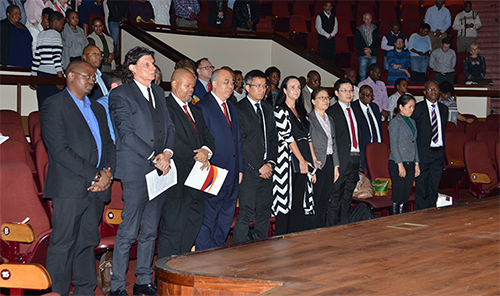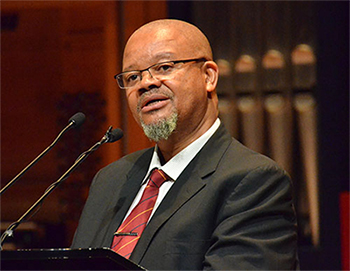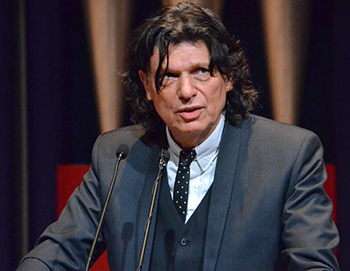
“Much of 2017 has been focused on transformation and this will continue concertedly into 2018 and beyond, until we are satisfied that we are becoming the university that is envisaged in our vision and our strategy,” said Prof Mandla Makhanya, Unisa’s Principal and Vice-Chancellor. He was speaking at the official closing ceremony of the 2017 academic year.

With Unisa management at the closing ceremony were Prof Qingxin Yang (President of the Tianjin Polytechnic University) and other members of his delegation, as well as Prof Billy Gundelfinger (Honorary Professor of Unisa’s College of Law, and a specialist divorce and criminal law attorney at Billy Gundelfinger Attorneys).
The VC urged that efforts should be coordinated and integrated for maximum benefit and impact to ensure that genuine change remains at the centre of Unisa’s transformation as a 21st century African university. “Transformation is our collective journey, and we all have to lead it,” he said. “In fact, 2017 was a watershed year for transformation at Unisa,” the VC added. He explained that Council had held workshops on transformation where all stakeholder voices on institutional transformation were represented. These workshops filled an important gap in Unisa’s institutional transformation initiatives.
Of course, lack of transformation is amongst other challenges facing Unisa and other higher education institutions (HEIs).

One of the trends that Prof Mandla Makhanya (Principal and Vice-Chancellor at Unisa) identified, moving into 2018, is that government is unlikely to find any more funding for universities. Furthermore, additional monies will be channeled into NSFAS, and not universities.
Nationally, the higher education sector in South Africa, and Unisa in particular, is faced with many hurdles. The Fees Commission Report has now been released, but there is still little clarity on the way forward for HEIs at this very late stage in the year, when budgeting cycles must conclude and be approved. “It would appear that there are four funding models under consideration, with no information available as to which of them may be selected—if at all. It therefore continues to be a time of volatility and anxiety, and as a sector we have to endure that we are prepared for such eventualities, so that examinations, registrations, operations, and, most importantly, teaching and learning, are not interrupted,” explained the VC.
One of the trends the VC identified, moving into 2018, is that government is unlikely to find any more funding for universities. Furthermore, additional monies will be channeled into NSFAS, and not universities. “We will see no increase in our allocations. In fact, there is growing talk of universities themselves having to increase financial support to students, which will require third-stream income,” he said. Unisa has already set in motion the creation of its own business entity, Unisa Enterprise, whose role is to generate a healthy income for the university, in line with an approved business model. Geoffrey Letsoela, CEO for the entity, has been appointed.
The VC shared that he had spent the better part of three years alerting, informing, and conscientising the international and Unisa university communities and stakeholders, including Council, to this trend and its implications for open, distance, and e-learning (ODeL) and Unisa. “I have done so in person, in speeches, addresses and reports, in our extended management lekgotla, and in Senate and Council meetings, to name but a few. I have consistently asserted Unisa’s uniqueness, the power of its brand, its competitive advantage, and the necessity of seizing this unique window of opportunity not only to entrench Unisa as the global, continental, and national ODeL leader, but also as the pre-eminent provider of quality-assured and accredited ODeL in the world.”
Within the very dynamic environment that the VC sketched, he was pleased to be able to report that Unisa is holding its own. “Of course we would have liked to have seen vastly improved performance but it is also true to say that there are some genuine mitigating factors which have impacted on our performance and which will take time and serious effort to address fully,” he said.

Prof Billy Gundelfinger (Honorary Professor of Unisa’s College of Law and a specialist divorce and criminal law attorney at the Billy Gundelfinger Attorneys).
The VC reminded staff that Unisa is a major pillar of South Africa’s higher education sector, making by far the largest contribution to our national pool of graduates. Despite a number of complex challenges in both the global and national higher education environments, Unisa has managed to ensure stability, and, even to a significant extent, meet the graduate outputs that it set for itself at the commencement of the 2016–2020 planning cycle. “Despite the challenge in regard to our LLB, I am pleased with the way that the university responded, which has resulted in accreditation of the qualification. Data provided indicate very reasonable academic performance under the extremely volatile conditions of the past three years and I expect improvements across all indicators in the future. Performance in postgraduate studies where we are carving out a niche for ourselves, is generally pleasing, but we will have to be vigilant, given the competition from new distance education providers in the sector,” he urged.
Adding to the conversation on Unisa’s LLB accreditation and the strides made by the College of Law (CLAW) was Prof Billy Gundelfinger, Honorary Professor of CLAW and a specialist divorce and criminal law attorney at Billy Gundelfinger Attorneys. Gundelfinger said that for him, being associated with this great and formidable university is an honour and a privilege. “I must commend Unisa’s College of Law for being a rainbow of hope to students who hold full-time jobs, who cannot afford or are unable to attend residential law faculties and who, through Unisa, are able to study according to their own schedules and in so doing, are able to balance education with their other commitments,” he said.
Gundelfinger said that the accreditation, last month, of the LLB Unisa programme by the Council of Higher Education now formally and officially acknowledges Unisa as one of the best law programmes in the country, providing students with an exceptionally high quality distance and interactive online education. “Unisa is well known for its exceptionally high quality and standard of study materials which are utilised by many other institutions. This university generously invests in their staff by upskilling and supporting them to further their education. Also, Unisa proudly promotes knowledge creation and decolonisation in Africa,” he said.
Gundelfinger founded the ORT Black Students Bursary Programme at Unisa in 1986, was appointed to the Board of Unisa in 1998, and appointed Honorary Professor of the College of Law in 2011.
Click here to read VC’s full address.
*By Kirosha Naicker
Publish date: 2017-12-07 00:00:00.0